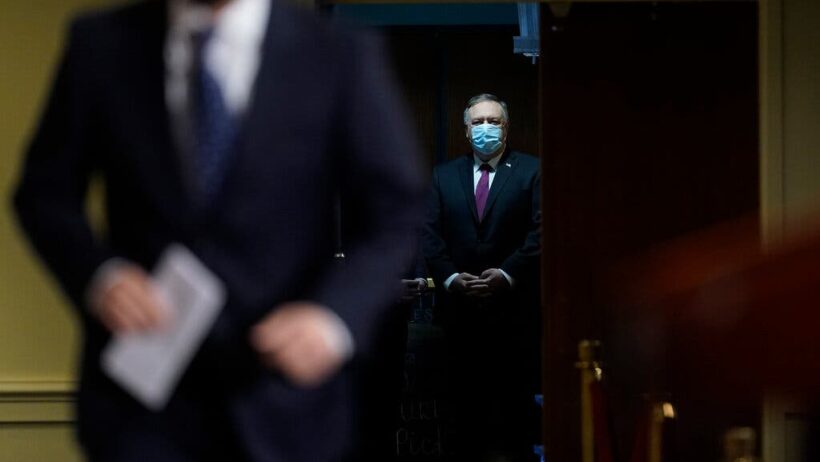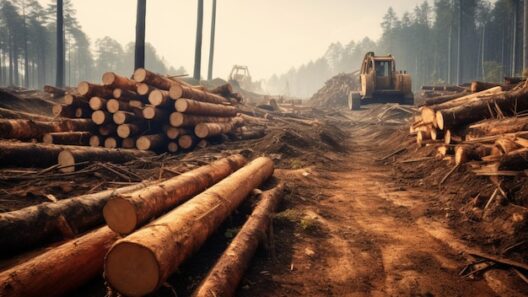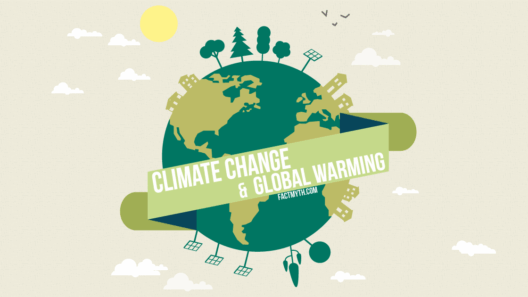In recent years, climate change has been at the forefront of political discourse, igniting debates as to how it is interpreted and addressed by various leaders. Notably, former Secretary of State Mike Pompeo made remarks that suggested an unconventional perspective on the topic, igniting questions and dialogues surrounding the nature of global warming. Did Pompeo indeed assert that global warming presents an opportunity? This assertion merits scrutiny, as it encapsulates a broader ideological confrontation not just over climate policy, but also over the way future generations will engage with our planet.
To venture further into this topic, one might pose a salient question: Can we genuinely perceive environmental calamity as an opportunity? The essence of Pompeo’s remarks could suggest a lighthearted challenge to prevailing narratives surrounding climate change, engendering a new way of thinking. In this sense, one could argue that the anthropogenic influences leading to climate perturbations may initiate pathways to innovation and adaptability.
Initially, it is crucial to decode what is meant by seeing climate change as an opportunity. Some proponents of this view argue that the pressing nature of climate change catalyzes necessary shifts in technology, urban planning, and economic systems. For instance, the acceleration towards renewable energy sources such as solar and wind power can be perceived as an adaptation strategy. This transition not only mitigates the detrimental impacts of fossil fuels—such as greenhouse gas emissions—but also stimulates economic growth through job creation in emerging sectors.
Moreover, the response to climate change can forge stronger community bonds. As societies face the ramifications of extreme weather events, the impetus for collaborative action becomes vital. Community gardens, local energy cooperatives, and shared resource initiatives are examples of endeavors that flourish under the duress of a changing climate. These actions can engender a renewed sense of purpose, where citizens rally to confront challenges collectively. The possibilities for innovation in sustainable living are myriad; thus, one could indeed argue that devastation may spur creativity.
Nevertheless, to frame climate change merely as an opportunity can be deceptively simplistic. The underlying structures of society often perpetuate inequalities, and the impacts of climate change disproportionately affect marginalized communities. Those with fewer resources are usually the least equipped to adapt to rising sea levels, severe droughts, or devastating storms. This stark reality raises a pivotal conundrum: How can we reconcile the notion of opportunity with the ethical obligation to protect the most vulnerable among us?
This question leads to an exploration of the concept of “climate justice.” Acknowledging that different demographics bear the brunt of climate change reveals a duality in the narrative. The idea of an opportunity must concurrently advocate for equitable solutions. Policymakers and industries must entwine innovation with inclusivity to forge pathways that ensure no community is left behind in the race against climate transformation.
Transitioning back to the political discourse centering around Pompeo, one can observe that his statements reflect a broader skepticism of alarmist rhetoric. Such skepticism invites scrutiny and urges us to engage in critical dialogue. While it may be tempting to dismiss these comments outright, one must interrogate the implications behind framing climate change in such an optimistic light. This approach beckons us to examine how narratives shape public perception and influence policy decisions.
While Pompeo may have delineated opportunities, his statements inadvertently shroud the meticulous scientific consensus reflecting the dire threats posed by climate change. For instance, rising temperatures are anticipated to result in broader ecological disruptions, causing species loss, habitat fragmentation, and increased susceptibility to invasive species. Masking these realities under the guise of opportunity can foster complacency and deter the urgent action required.
Hence, as we navigate these complex discussions, it is crucial to balance optimism with realism. Emphasizing innovation does not absolve us of responsibility; rather, it must accompany a steadfast commitment to combating the existential threats facing our planet. As an exploration of solutions takes precedence, integrating diverse voices can enhance adaptive strategies for climate resilience.
Consequently, we find ourselves at a junction where dialogue surrounding Pompeo’s assertion can pave the way for productive discourse. Ironically, viewing climate change through a lens of opportunity challenges us to strive for transformative solutions, yet simultaneously compels us to confront the grim realities that accompany this paradigm. Therefore, addressing climate change effectively requires synthesizing optimism and realism, pushing for a collaborative future that amplifies technological advancements while ensuring equity.
In conclusion, the portrayal of climate change as an opportunity raises critical issues about innovation, collaboration, and ethics. This interplay invites greater examination into not only how we envision our response to climate perturbations but also who stands to benefit—or suffer—from inequitable solutions. As we engage in this multifaceted dialogue, the challenge remains: how can society not only harness potential opportunities but also recognize and rectify the systemic inequalities that climate change exacerbates? Only through such rigorous introspection can we forge pathways to a sustainable and just future.






